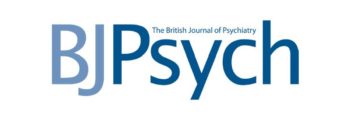Abilify Lawsuit
Update: Abilify Lawsuits Consolidated in Florida
October 6, 2016 – The U.S. Judicial Panel on Multidistrict Litigation (JPML) has consolidated all federal lawsuits alleging compulsive gambling side effects from Abilify in federal court in Florida. At least 22 complaints pending in 12 districts will be centralized before Chief Judge M. Casey Rodgers in the Northern District of Florida, according to the Transfer Order (PDF). The litigation is In Re: Abilify Compulsive Behavior Products Liability Litigation – MDL No. 2734.
What is Abilify?
Abilify (generic: aripiprazole) is an antipsychotic medication that works by changing the actions of chemicals in the brain. It is used to treat the symptoms of psychotic conditions such as schizophrenia and bipolar disorder, and may be prescribed for major depressive order in adults. The Otsuka Pharmaceutical Co. developed Abilify and partnered with Bristol-Myers Squibb (BMS) to market the drug. Abilify was approved by the U.S. Food & Drug Administration (FDA) on November 15, 2002.
What’s the Problem?
Recent studies have linked the use of Abilify to uncontrollable behaviors including compulsive gambling, binge eating, shopping and hypersexuality. Abilify users who accumulated heavy economic losses after taking the drug are filing lawsuits against Otsuka and Bristol-Myers Squibb.
Compulsive Gambling
Abilify has been reported to cause some users to gamble by any means necessary, and to continue doing so long after they can no longer afford it. These people max out credit cards or borrow money to maintain their habit, and in some cases feel they need to gamble in order to stay alive. While this behavior may not result in physical harm, it can cause ruin lives and cause irreversible psychological distress.
Abilify Gambling Addiction Studies
- In February 2011, a study published in Current Drug Safety described 3 cases of gambling addiction in patients with no history of the disorder before taking Abilify. All of the patients’ symptoms resolved after quitting the drug.
- A study published In the British Journal of Psychiatry (BJPsych) July 2011 reported on 3 cases of gambling addiction in schizophrenic patients treated with Abilify.
- A French study published in Addictive Behavior in March 2014 found 8 cases of gambling addiction potentially linked to Abilify.
- JAMA Internal Medicine study published in December 2014 reported on 37 cases of behavior disorders in patients treated with Abilify. However, a much stronger signal was observed with Mirapex (pramipexole) and Requip (ropinirole), Parkinson’s disease drugs in the same class as Abilify.
Abilify Seriously Harms Your Impulse Control Center: Ring of Fire Video
Did the Manufacturer Warn of Compulsive Behavior?
While the labeling of Abilify previously warned about serious side effects such as suicidal thoughts and an increased risk of death in elderly patients with dementia, there was no warning about compulsive behavior, binge eating or hypersexuality until recently. On May 3, 2016, the FDA issued a Drug Safety Communication announcing that it was requiring updated warnings on Abilify labels regarding an increased risk for uncontrollable urges to gamble, eat, shop and have sex. The agency said it received at least 184 reports of impulse-control disorders since Abilify first hit the U.S. market in November 2002.
Abilify Side Effects
- Compulsive behaviors
- Compulsive gambling / gambling addiction
- Binge eating
- Excessive shopping
- Hypersexuality / sex addiction
- Type 2 diabetes
- Difficulty speaking
- Drooling
- Loss of balance control
- Muscle trembling, jerking, or stiffness
- Restlessness
- Shuffling walk
- Stiffness of the limbs
- Twisting / uncontrolled movements of the body
- And more
Type 2 Diabetes
The “off-label” use of Abilify has raked in billions for BMS and Otsuka since the drug was approved in 2002. However, studies have found that children face an increased risk for developing type 2 diabetes when they take Abilify.
In August 2013, a study published by Vanderbilt University found that children who take atypical antipsychotic medications like Abilify have a 3-fold increased risk of developing type 2 diabetes. While earlier research had found similar links, the Vanderbilt study was the first large, well-designed study to look at the risk in pediatric patients. The researchers noted that the use of atypical antipsychotics for non-psychosis-related disorders in children now accounts for the majority of prescriptions.
Illegal Marketing Charges
In September 2007, Bristol-Myers Squibb agreed to pay $515 million to resolve federal charges accusing it of illegally marketing Abilify, including marketing to nursing homes despite the drug being linked to an increased risk for death in senior citizens with dementia. Abilify is not and has never been approved by the FDA for the treatment of dementia. BMS denied any wrongdoing.
Lawsuit Allegations
Abilify lawsuits accuse the manufacturers of:
- Failing to adequately warn the public and medical communities about the potential health risks of Abilify.
- Selling a defective drug.
- Concealing health risks.
- Misrepresenting the safety and effectiveness of Abilify.
- Improper marketing.
Abilify Timeline
November 15, 2002 – Approved by the FDA

November 15, 2002 – Abilify approved by the U.S. Food & Drug Administration (FDA).
September 28, 2007 – Bristol-Myers Squibb pays settlements
September 28, 2007 – Bristol-Myers Squibb agrees to pay $515 million to settle federal allegations that it illegally marketed Abilify for pediatric use and to treat dementia-related psychosis.
February 1, 2011 – Current Drug Safety study published
February 1, 2011 – Study published in Current Drug Safety describes 3 cases of gambling addiction in Abilify users. None of the patients had the disorder prior to taking Abilify, and all improved upon discontinuation of the drug.
July 2011 – British Journal of Psychiatry study published

July 2011 – Study published in the British Journal of Psychiatry reports on 3 patients with schizophrenia who experienced compulsive gambling behaviors after taking Abilify.
August 22, 2013 – Vanderbilt University study published
August 22, 2013 – Study published by Vanderbilt University finds a 3-fold increased risk of type 2 diabetes in children who take Abilify for non-psychosis-related disorders.
March 2014 – French study findings
March 2014 – French study identifies 8 cases of gambling addiction potentially linked to Abilify.
December 2014 – JAMA Internal Medicine study findings

December 2014 – JAMA Internal Medicine study lists 37 cases of behavior disorders in patients who took Abilify
May 3, 2016 – Abilify labels updated
May 3, 2016 – Abilify labels updated to include a warning about uncontrollable desires to gamble, eat, shop and have sex.

